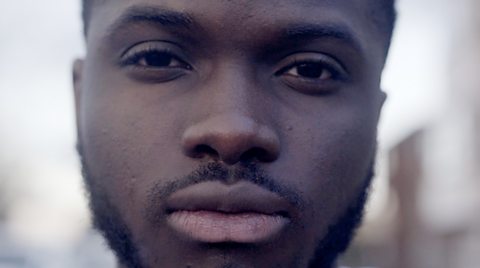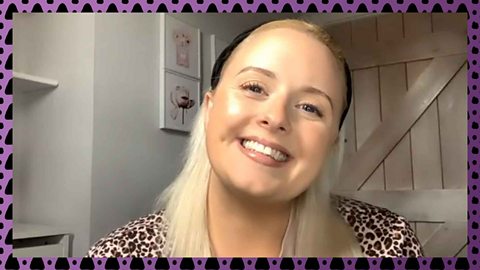This article was first published in May 2021.
When you feel low or anxious, it can be hard in the moment to think that youãll ever feel better. But you can, and when you do, you might look back on the person you were during your difficult times and wish you could give your younger self some reassurance.
In a new series of ôÕÑ¿å¥éá Bitesize videos called Dear Younger Me, a number of young people have done just that, writing and recording letters to their younger selves.
Writing a letter to a version of yourself that was going through a hard time can be really helpful. We spoke to Dr Roslyn Law, a clinical psychologist with the Anna Freud Centre, to find out why.
A clearer narrative
When we look back on our childhood, we tend to remember events in bits and pieces, as opposed to seeing them as having a beginning, middle and an end. Dr Law says this happens even more starkly ãwhen there have been times that have been much more emotionally charged or difficult or distressing.ã
In particular, when remembering these more upsetting life events, youãre quite likely to remember it in terms of how you felt at the time: ãHow your body felt, emotionally how you felt, the fear that you felt.ã
Also, when youãre younger, you may not have the words to fully express how you feel. Putting it all down on paper when youãre older can be a great way to process things that have happened to you and emotions youãve felt in a more organised way.
Letter-writing can help put difficult moments in context. You can calmly lay down all of the things that happened and make the memories easier for you to look back on.
Looking back as an older teenager or adult on your childhood, or times in your life that have been difficult, can help provide a different perspective. It may help you to work out why something happened or why you reacted in the way that you did. This can be a great tool in the healing process, as ãyou sort of become the adult to your child self who just wasn't able to do that,ã Dr Law explains.

Need some inspiration to write your own letter? Here are three from the Dear Younger Me series that you can have a watch of.
Dear Younger Me: Donnell
If you wrote a letter to your younger self, what would it say? This is Donnell's letter.

Dear Younger Me: Amy
If you wrote a letter to your younger self, what would it say? This is Amy's letter.

Dear Younger Me: Kit
If you wrote a letter to your younger self, what would it say? This is Kit's letter.


Forgiving yourself
And finally, Dr Law says letter-writing ãcan contribute to promoting a more self-soothing, compassionate view of self-forgiveness.ã
By recounting events in the form of a letter, you may notice aspects of what happened to you that you hadnãt noticed before, and you might understand better how and why you reacted the way you did to certain events. You may realise for the first time that some things just werenãt your fault and this can help you to quieten ãthe internalised critic, or blaming voice that could [otherwise] get stuckã, Dr Law says.
Other techniques
As well as writing letters to your younger self, Dr Law says that something she recommends to patients at the end of their therapy treatment is writing a letter, or recording a video message, to their future self.
She explains that this can be an excellent tool in reminding you what helped you if you start to feel low or anxious again in the future.
ãWhen you start to feel that way, it can be difficult to imagine that anyone understands how you feel,ã Dr Law says. ãBut if it's coming from you, knowing that you felt this way before, maybe there's a chance that you can listen to yourself saying ãthis is right now when I'm feeling better, this is what I've learned.ãã

If you need support
You should always tell someone about the things youãre worried about. You can tell a friend, parent, guardian, teacher, or another trusted adult. If you're struggling with your mental health, going to your GP can be a good place to start to find help. Your GP can let you know what support is available to you, suggest different types of treatment and offer regular check-ups to see how youãre doing.
If youãre in need of in-the-moment support you can contact , where you can speak to a counsellor. Their lines are open 24 hours a day, 7 days a week.
There are more links to helpful organisations on ôÕÑ¿å¥éá Action Line.

Finding the words: Can you help Misha with her anxiety?
An interactive film about helping friends with their mental health.

How to support a friend with their mental health
Katie Thistleton with advice from Young Minds on how to support a friend with their mental health.

Thoughts and feelings getting you down? Here's some advice on when to seek help
If your thoughts and feelings are getting you down, we've provided some advice about when to seek help.
